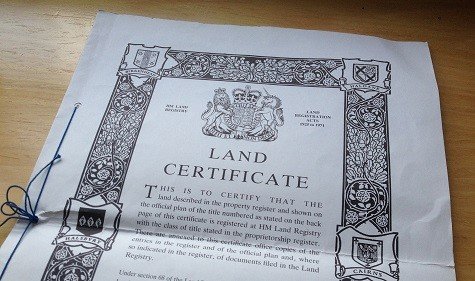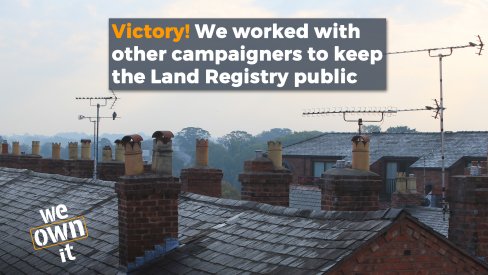
24 November 2015
This article, written by Duncan McCann, was first published on the NEF Blog.
In tomorrow’s autumn spending review, the chancellor George Osborne will announce plans to privatise part of the UK Land Registry. Initial estimates indicate that it could raise about £1.2 billion and form part of a larger plan by the current government to raise £20 billion by privatising Channel 4 amongst other state assets.
Reports last week noted that the investment bank Rothschild has been asked to look into the prospect of selling the state-owned agency. This is the same institution that provided a dubious analysis of the RBS share sale.
But this isn’t the first time that plans to privatise the Land Registry have emerged. Last year, Vince Cable vetoed the proposed sale while overseeing the Department for Business, Innovation and Skills.
In a previous NEF article on land registration, we noted the lack of available information about who owns land in the UK. But to create a better planning system, we need to understand who owns what and where the large subsidies for land and housing are going. However the source of this problem is not the actions of the Land Registry and its staff, but Acts of Parliament – law and legislation – that govern when a registration is required.
What we need is a Land Registry invested with the powers to map out all the owners of land in the UK and with a mandate to provide information at a fair price to those who need it. Privatisation is not the answer to either of these issues.
The rationale of privatisation often focuses on the inability of the public sector to act as efficiently as their private sector counterparts, leading to inefficient operations that would be better managed in private hands that are driven by the profit motive.
But the Land Registry does not fit this description. Firstly the Land Registry operates a monopoly service, meaning there are no competitors. Secondly it performs functions that are specifically mandated by Acts of Parliament such as guaranteeing, on behalf of the crown, the titles to registered estates and interests in land.
The current government is not, publically at least, pushing the competition narrative. Mr Osborne’s stated aim is to bolster public finances and try to mitigate the ever continuing increase in public debt.
By adopting a strategy of selling profit-making public assets to the private sector, the government has adopted a very short term approach to providing some financial relief today, at the expense of future government’s ability to raise revenue and provide services. The £1 billion that could be raised by the sale will not have a noticeable impact on public finances – it would neither reduce debt or the structural deficit.
The Land Registry is required by stature to ensure that their ‘income from fees covers all expenditure’. In reality it actually generates a profit. In 2014 and 2015 it generated a surplus and paid a dividend to the Treasury of £26.6 million and £19.1 million respectively as well as 2 special dividends of £100 million each. In many countries this kind of institution would be termed an asset and would be protected to ensure that it continued.
There is little support for the move from the public, the property industry, or unions. The property industry fear that the privatisation could be a license to extract economic rent due to the lack of competition and the need of the property industry to contract its services. At the same time unions fear that it could lead to an erosion of the conditions of the 4500 employees of the Land Registry. When privatisation was suggested in 2014 employees had planned to stage a strike.
The Land Registry should stay in public ownership. Here is an organisation that requires no state funding, generates a surplus profit and provides an annual dividend to the Treasury. In addition it provides legally mandated services for which there is no competitor. All these factors make it a very poor candidate for privatisation and instead, should be considered a valuable public asset.
What we really need is to make the information held by the Land Registry easier and cheaper to access so that we can all understand the land ownership structure in our local area. We need more open and free data, not data sitting behind an expensive paywall for the benefit of shareholders.

Photo by Ben Terrett and used under the Creative Commons License.



Add new comment